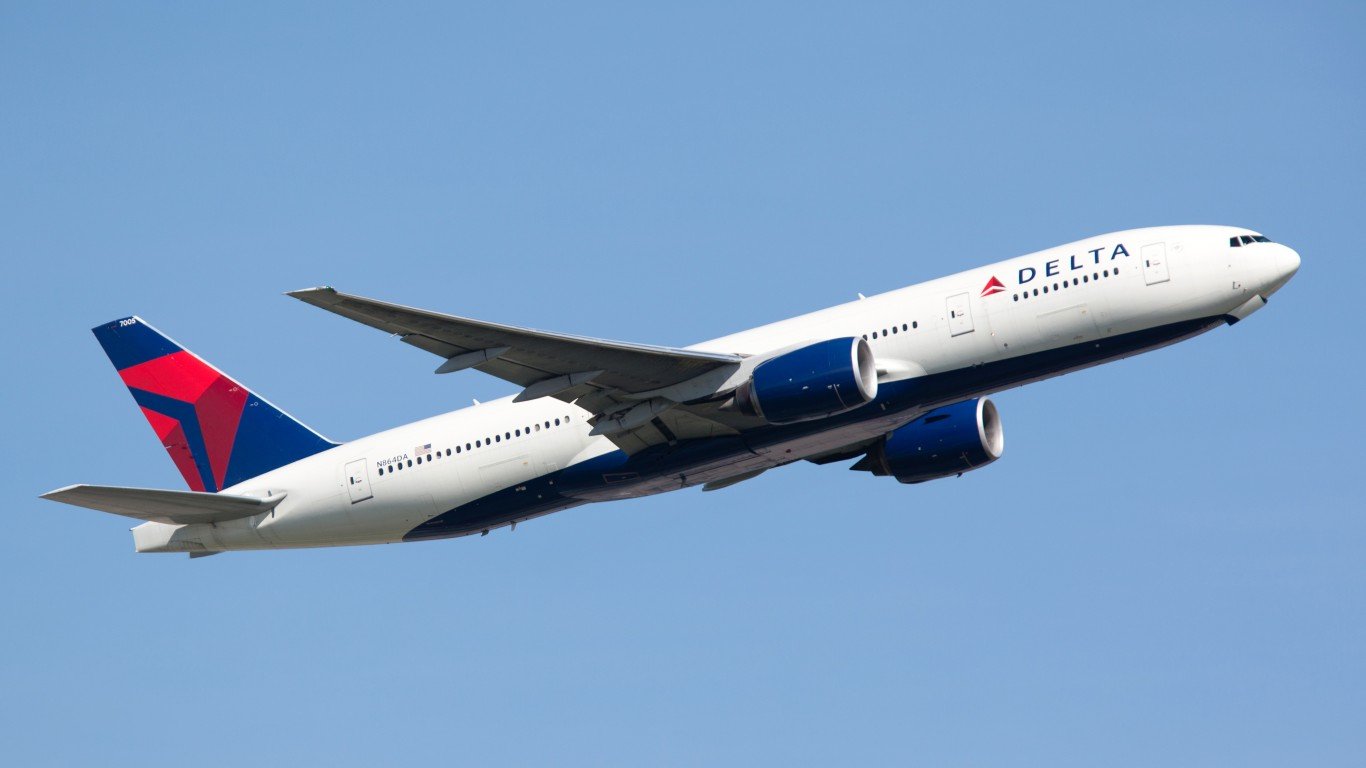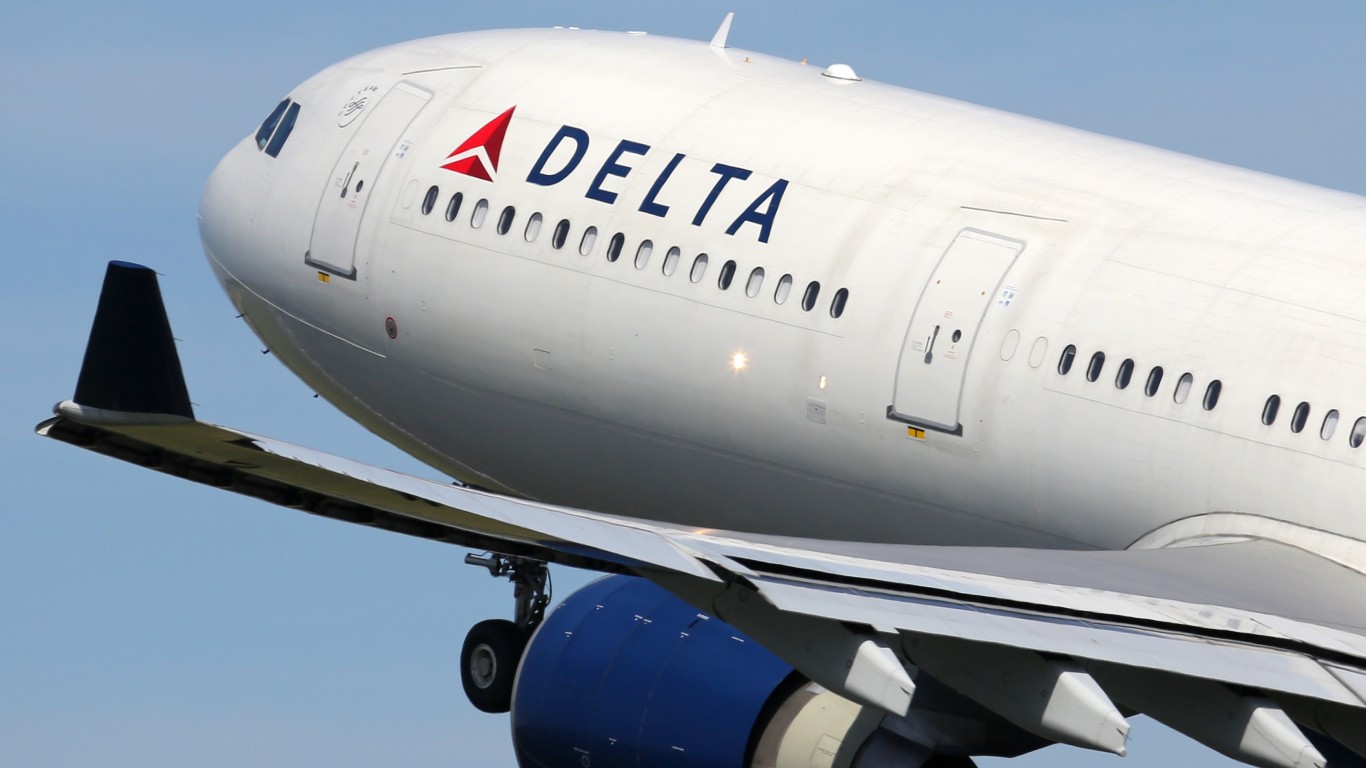

There are a variety of reasons investors love dividends. They provide assurance that a company is financially healthy enough to reward investors. Dividend stocks often perform better in market downturns and recessions. Dividends may offer tax advantages and help mitigate losses. And they offer total return (stock appreciation plus distributions), which is particularly important for income-seeking investors. So a notable dividend hike, like at Delta Air Lines Inc. (NYSE: DAL) last year, is certain to garner investor attention.
After suspending its quarterly dividend during the pandemic, Delta resumed its payout to shareholders last year with a pair of $0.10 per share distributions. The first dividend for this year was also $0.10 per share. Note that the last payout before the suspension was for $0.4025 a share. That dividend had been growing annually since it was at $0.06 per share in 2012. That’s a good track record, but due to the pandemic, the company has hit the reset button and has a long way to go to become a Dividend Aristocrat. Those are companies that have increased their payout every year for at least 25 years.
Delta Air Lines’ Prospects

Delta Air Lines provides scheduled air transportation for passengers and cargo worldwide with a fleet of approximately 1,273 aircraft. Its domestic network is centered on core hubs in Atlanta, Minneapolis-St. Paul, Detroit, and Salt Lake City, as well as coastal hubs in Boston, Los Angeles, New York-LaGuardia, New York-JFK, and Seattle. Its international network is centered on hubs and market presence in Amsterdam, Bogota, Lima, Mexico City, London-Heathrow, Paris-Charles de Gaulle, Sao Paulo, Seoul-Incheon, and Tokyo. (See which are the most congested airports in the United States.)
The company also acts as a reservations specialist and operates online travel and traditional brick-and-mortar agencies. It provides aircraft maintenance and engineering support, repair, and overhaul services, as well as vacation packages to third-party consumers.
The company was founded in 1924 as a crop-dusting service and began passenger service in 1929. After first going public in 1957, it was relisted on the New York Stock Exchange after emerging from bankruptcy in 2007. The company has been based in Atlanta since 1941. Competitors include American Airlines Group Inc. (NASDAQ: AAL), Southwest Airlines Co. (NYSE: LUV), and United Airlines Holdings Inc. (NASDAQ: UAL).
Delta is among the airlines affected by the woes at manufacturer Boeing. It expects deliveries of the 737 Max to be delayed until 2027. The cost of fuel is also a concern for carriers, and Delta is among those boosting passenger fees. Delta Air Lines more than doubled its profit in the fourth quarter. Last month it reaffirmed its earnings forecast for the first quarter, with the CEO noting strong demand. Note that the airline shares profits with employees.
Despite being up about 48% at one point, its share price ended last year 22.4% higher. The stock is up about 17% so far this year and trading closer to the 52-week high of $49.81 than the 52-week low of $30.60. The consensus price target is up at $56.56. That means analysts see more than 20% further upside in the next year. All of the 18 analysts who cover the stock recommend buying shares, with seven of them rating it at Strong Buy.
Major shareholders include Blackrock, State Street, and Morgan Stanley. The latter recently named Delta Air Lines as a top pick for 2024. The analyst cited Delta’s focus on selling premium products to customers, as well as targeting younger fliers since the pandemic, for boosting revenues.
∴
Take This Retirement Quiz To Get Matched With A Financial Advisor (Sponsored)
Take the quiz below to get matched with a financial advisor today.
Each advisor has been vetted by SmartAsset and is held to a fiduciary standard to act in your best interests.
Here’s how it works:
1. Answer SmartAsset advisor match quiz
2. Review your pre-screened matches at your leisure. Check out the advisors’ profiles.
3. Speak with advisors at no cost to you. Have an introductory call on the phone or introduction in person and choose whom to work with in the future
Take the retirement quiz right here.
Thank you for reading! Have some feedback for us?
Contact the 24/7 Wall St. editorial team.



